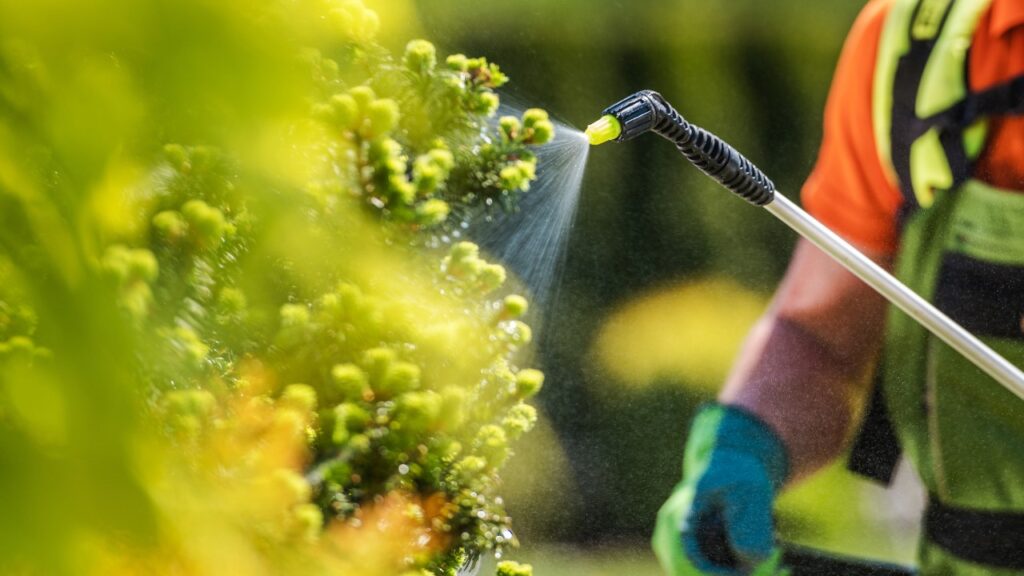Roundup cancer: Who’s affected?

Do you regularly use Roundup weed killer for your job? Have you or a loved one been diagnosed with non-Hodgkin’s lymphoma or another cancer after using Roundup regularly?
Monsanto and its parent company, Bayer, face thousands of lawsuits alleging Roundup weed killer is dangerous and could cause various cancers, including non-Hodgkin’s lymphoma. If you or a loved one developed cancer after using Roundup for a job, you may have a legal claim.
Individuals who regularly work with Roundup may include:
- Farmers
- Groundskeepers
- Landscape workers
- Professional gardeners
- Herbicide applicators in various industries
Workers in these and other professions have successfully taken legal action against Bayer for Roundup cancer injuries. In 2018, a California jury awarded a groundskeeper $289 million in damages after finding his occupational use of weed killer containing glyphosate — the active ingredient in Roundup — caused his non-Hodgkin’s lymphoma. Since then, other individuals have successfully recovered compensation for similar injuries.

Do you qualify?
If you had repeated, significant exposure to Roundup and later developed cancer, such as non-Hodgkin’s lymphoma, you could be eligible to join this Roundup cancer lawsuit investigation.
Fill out the form on this page for more information.
Roundup: overview & safety concerns
Roundup is a weed killer that uses glyphosate to kill weeds and other unwanted plants. Roundup was initially owned and distributed by Monsanto before Bayer acquired the company.
The chemical targets enzymes in certain plants, allowing other crops and plants to grow despite treatment. Although Roundup is used residentially to control weeds, most glyphosate products are used by professionals in agriculture or landscaping. According to a 2019 memo from the U.S. Environmental Protection Agency (EPA), around 280 million pounds of glyphosate are applied to cropland yearly.
Individuals can become exposed to glyphosate through skin absorption, breathing in the chemical, or consuming the weed killer by eating treated or contaminated foods.
Glyphosate safety issues
Although glyphosate is widely used in the United States, it is not without safety concerns.
In 2015, the International Agency for Research on Cancer (IARC) classified glyphosate as “probably carcinogenic to humans” (Group 2A). This decision was based on “limited” evidence of cancer through real-world human exposure and “sufficient” evidence of cancer in experimental animals.
According to the IARC, while there isn’t enough evidence to classify glyphosate as carcinogenic to humans (Group 1), the review of around 1,000 studies led the agency to conclude there was “strong” evidence pure glyphosate and glyphosate formulations such as Roundup could be genotoxic — meaning they could potentially damage genes and chromosomes, according to the National Institutes of Health.
Some areas have banned the use of glyphosate due to this classification. For example, the Los Angeles County Board of Supervisors banned glyphosate usage in 2019. Other cities and counties have passed similar bans to protect residents from potentially harmful herbicides.
Despite these concerns and outcry from safety advocates, the EPA has not issued any restrictions on glyphosate use.
The EPA maintains glyphosate is not carcinogenic to humans.
In February 2020, the agency published an interim decision finding that there were “no risks of concern to human health” associated with label-adherent use of glyphosate products such as Roundup.
This decision was challenged in March 2020, and a federal appeals court vacated the human health portion of the EPA’s 2020 decision in June 2022. The agency reportedly plans to address the vacated parts of its decision but could not do so by the court’s October 2022 deadline.
Following the IARC classification, glyphosate was added to California’s Proposition 65 list, a list of potentially cancer-causing agents which must be disclosed on warning labels. In response, the EPA blocked California from requiring Bayer to add warning labels under Proposition 65 in 2019. Based on its determination that glyphosate was “not likely to be carcinogenic to humans,” the agency determined Proposition 65 warnings on Roundup products could be considered “false and misleading.”
Although a 2023 amendment to safe harbor language could resolve this issue, an official agreement has yet to be made.
Without federal glyphosate restrictions from the EPA, companies such as Bayer are free to continue selling Roundup and other weed killers that could cause health concerns.
Roundup verdicts for non-Hodgkin’s lymphoma and other cancer patients
While the EPA fights critics on the safety of glyphosate usage, injured users and their loved ones have filed thousands of lawsuits against Monsanto and Bayer to seek compensation for their diagnoses of cancers such as non-Hodgkin’s lymphoma. Although many trials are ongoing, plaintiffs have been successful in their lawsuits.
The first Roundup cancer trial was held in San Francisco’s Superior Court of California and heard the case of a California groundskeeper who developed terminal non-Hodgkin’s lymphoma after using glyphosate for his job. The man won the trial in 2018 when Monsanto was ordered to pay $289 million in damages. This jury award was later reduced to $78 million after Bayer appealed the decision.
In May 2019, a couple that developed non-Hodgkin’s lymphoma was awarded more than $2 billion in a landmark jury verdict. This award was later reduced to $86.7 million.
Also in 2019, a California jury awarded one man $80 million in a Roundup cancer trial. This verdict was later reduced to $25 million. In 2021, Bayer lost its appeal when a federal appeals court upheld the revised verdict award. Bayer attempted to elevate this decision to the U.S. Supreme Court, but the high court rejected the plea in June 2022.
Although the company continues to fight against these verdicts and pending lawsuits, Bayer has reportedly set aside $4.5 billion to settle anticipated claims through settlements and litigation.
Monsanto previously agreed to a $45 million class action settlement to resolve Roundup false advertising claims, but this deal did not resolve personal injury claims resulting from cancer diagnoses and other harm.
People exposed to Roundup who developed cancer, such as non-Hodgkin’s lymphoma, as a result could take legal action and, if successful, recover compensation.
Individuals who regularly worked with a large amount of Roundup weed killer may include:
- Farmers
- Groundskeepers
- Landscape workers
- Professional gardeners
- Herbicide applicators in various industries
Although many homeowners have used Roundup a handful of times on their properties, the most at-risk individuals are those who used glyphosate weed killer in large quantities as part of their jobs.
Significant Roundup exposure may be linked to cancers such as:
- Non-Hodgkin’s lymphoma
- B-cell lymphoma
- T-cell lymphoma
- Chronic lymphocytic leukemia
- Hairy cell leukemia
If you had repeated, significant exposure to Roundup and later developed cancer, such as non-Hodgkin’s lymphoma, you could be eligible to join this Roundup cancer lawsuit investigation.
Fill out the form on this page for a FREE case evaluation.
GET HELP – IT’S FREE
Join a Roundup cancer lawsuit investigation
If you qualify, an attorney will contact you to discuss the details of your potential case at no charge to you.
After you fill out the form, the attorneys who work with Top Class Actions may contact you to discuss your legal rights.
ATTORNEY ADVERTISEMENT
The choice of a lawyer is an important decision and should not be based solely on advertisements.
PAID ATTORNEY ADVERTISEMENT: THIS WEB PAGE IS AN ADVERTISEMENT AND THE PARTICIPATING ATTORNEY(S) ARE INCLUDED BECAUSE THEY PAY AN ADVERTISING FEE. Top Class Actions is not a law firm, lawyer referral service, or prepaid legal services plan. We do not endorse or recommend any third-party claims processing company, lawyer, or law firm who participates in the network. We do not make any representation, and have not made any judgment, as to the qualifications, expertise, or credentials of any participating lawyer or processing group. No representation is made that the quality of the legal services or claims processing to be performed is greater than the quality of legal services or claims processing performed by other lawyers or claims processing group. The information contained herein is not legal advice. Any information you submit to Top Class Actions does not create an attorney-client relationship and may not be protected by attorney-client privilege because Top Class Actions is not a law firm. Instead, your information will be forwarded to an attorney(s) or their agent(s) or a claims processing firm for the purpose of a confidential review and potential representation if you qualify. You will only be contacted by an attorney(s) or their agent(s) in response to your inquiry if your initial information appears to qualify you for representation. If you are not contacted by an attorney(s) or their agent(s) within one week, you should consult another firm since all legal claims are subject to filing deadlines. All photos on this website are stock art and do not depict clients.












